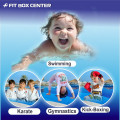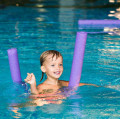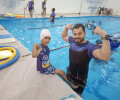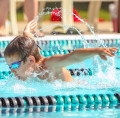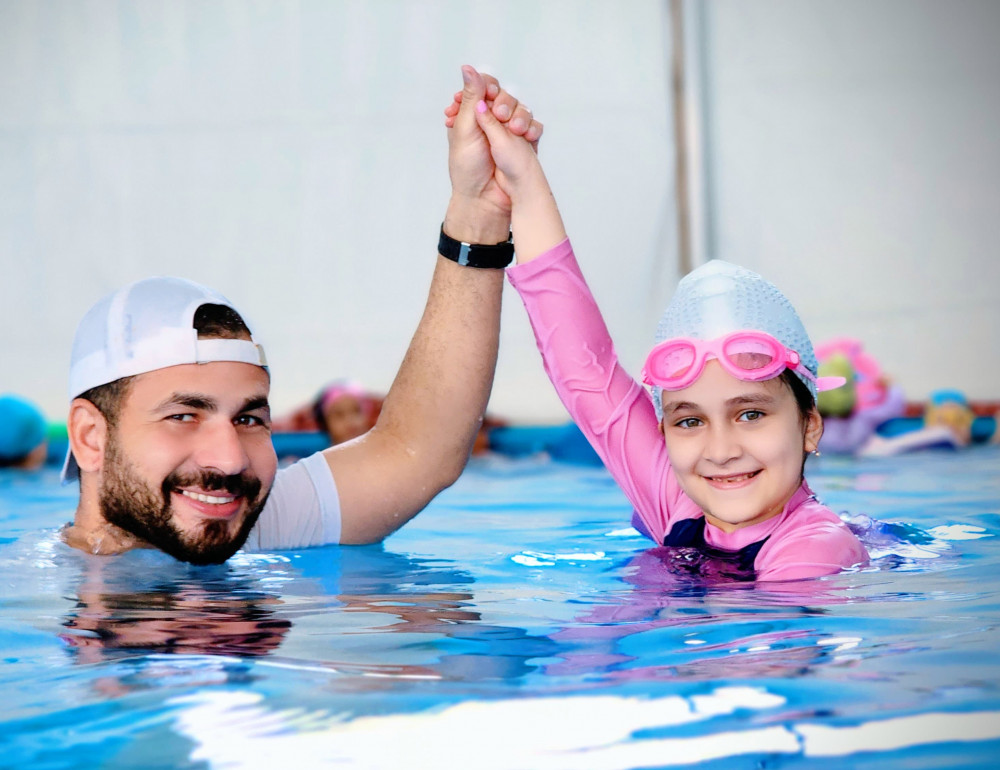
Swimming Talented Kids Learning Swimming Soon
2024-08-03 - swimmingSwimming is not just a vital life skill; it's a gateway to a world of fun, fitness, and confidence. If you notice your child has a knack for swimming, it's a great idea to nurture that talent early. Let's dive into the essentials of recognizing and supporting young swimming talents, ensuring they not only learn but thrive in the water.
Recognizing Swimming Talent in Kids
Some kids just seem built for the water. They might have a natural buoyancy, coordination, or strong limbs. These physical traits can give them an edge in swimming, making it easier for them to float, kick, and move through the water efficiently.
Enthusiasm for Water
A child's love for water is a significant indicator. If your little one is always eager to jump into the pool, loves bath time, or shows excitement about visiting the beach, these are all signs of a potential swimming enthusiast.
Encouraging Interest in Swimming
Family Influence
Children often mirror their parents' interests. If you enjoy swimming and make it a regular family activity, your child is more likely to develop a keen interest. Swimming together can be a bonding experience and a way to foster a love for the water.
Exposure to Water Activities
Beyond swimming pools, frequenting lakes, beaches, or water parks can also spark a child's interest in swimming. The more comfortable and familiar they are with water, the more likely they are to enjoy and excel in swimming.
Benefits of Early Swimming Lessons
Muscle Strength
Swimming is a full-body workout. For kids, it means developing muscle strength in a fun and low-impact way. Their arms, legs, and core get stronger, contributing to overall physical health.
Coordination and Balance
Swimming requires coordination between the arms, legs, and breathing. This multi-tasking boosts a child's balance and coordination, skills that are beneficial both in and out of the water.
Cognitive Benefits
Problem-Solving Skills
Swimming involves learning strokes, turns, and breathing techniques, which can enhance a child's problem-solving abilities. They learn to navigate the water and think critically about how to improve their performance.
Boost in Confidence
Mastering swimming skills can significantly boost a child's confidence. Overcoming the challenge of learning to swim instills a sense of accomplishment and encourages them to tackle other challenges with a positive attitude.
Choosing the Right Swimming Program
Qualified Instructors
Ensure the swimming program has qualified instructors who are experienced in teaching children. Look for certifications and a track record of working with young swimmers.
Safety Measures
Safety should always be a priority. The program should have strict safety protocols, including lifeguards on duty, proper pool maintenance, and emergency procedures.
Types of Swimming Programs
Group Lessons
Group lessons can be a great way for children to learn while socializing with peers. These classes often build camaraderie and friendly competition, motivating kids to improve together.
Private Coaching
For a more personalized approach, private coaching might be the way to go. It allows for one-on-one attention, catering to your child's specific needs and pace of learning.
Overcoming Common Challenges
Fear of Water
Gradual Exposure
For children who are afraid of water, gradual exposure is key. Start with shallow water and slowly move to deeper sections as their comfort grows. Patience and reassurance are crucial.
Positive Reinforcement
Celebrate small victories. Positive reinforcement can help build a child's confidence and reduce their fear. Praise their efforts and progress, no matter how minor.
Maintaining Motivation
Setting Achievable Goals
Set realistic and achievable goals for your child. These can be as simple as floating for a few seconds or swimming a short distance. Small milestones keep them motivated.
Celebrating Progress
Always celebrate progress, no matter how small. Acknowledging their hard work and improvement encourages them to keep going and strive for more.
Parental Involvement in Swimming Lessons
Providing Support
Encouragement and Patience
Be your child's biggest cheerleader. Encourage them, be patient with their pace of learning, and show enthusiasm for their efforts and achievements.
Consistent Practice
Consistency is key to mastering swimming. Make sure your child practices regularly, reinforcing what they've learned in lessons and building their skills over time.
Conclusion
Recognizing and nurturing a child's swimming talent early can lead to numerous physical, cognitive, and emotional benefits. With the right support, encouragement, and programs, young swimmers can not only learn to swim but excel at it, setting the stage for a lifelong love of the water.
.


